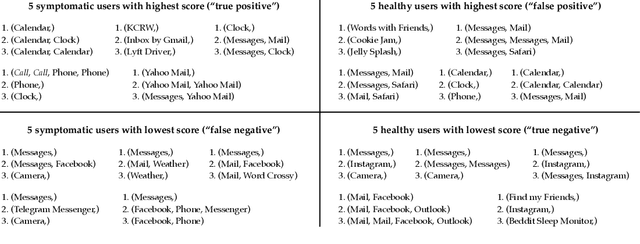Modeling patterns of smartphone usage and their relationship to cognitive health
Paper and Code
Nov 13, 2019


The ubiquity of smartphone usage in many people's lives make it a rich source of information about a person's mental and cognitive state. In this work we analyze 12 weeks of phone usage data from 113 older adults, 31 with diagnosed cognitive impairment and 82 without. We develop structured models of users' smartphone interactions to reveal differences in phone usage patterns between people with and without cognitive impairment. In particular, we focus on inferring specific types of phone usage sessions that are predictive of cognitive impairment. Our model achieves an AUROC of 0.79 when discriminating between healthy and symptomatic subjects, and its interpretability enables novel insights into which aspects of phone usage strongly relate with cognitive health in our dataset.
 Add to Chrome
Add to Chrome Add to Firefox
Add to Firefox Add to Edge
Add to Edge